Apple launches appeal against £11bn EU back-tax bill
Company says the case 'has never been about how much tax Apple pays, it's about where that tax is paid'
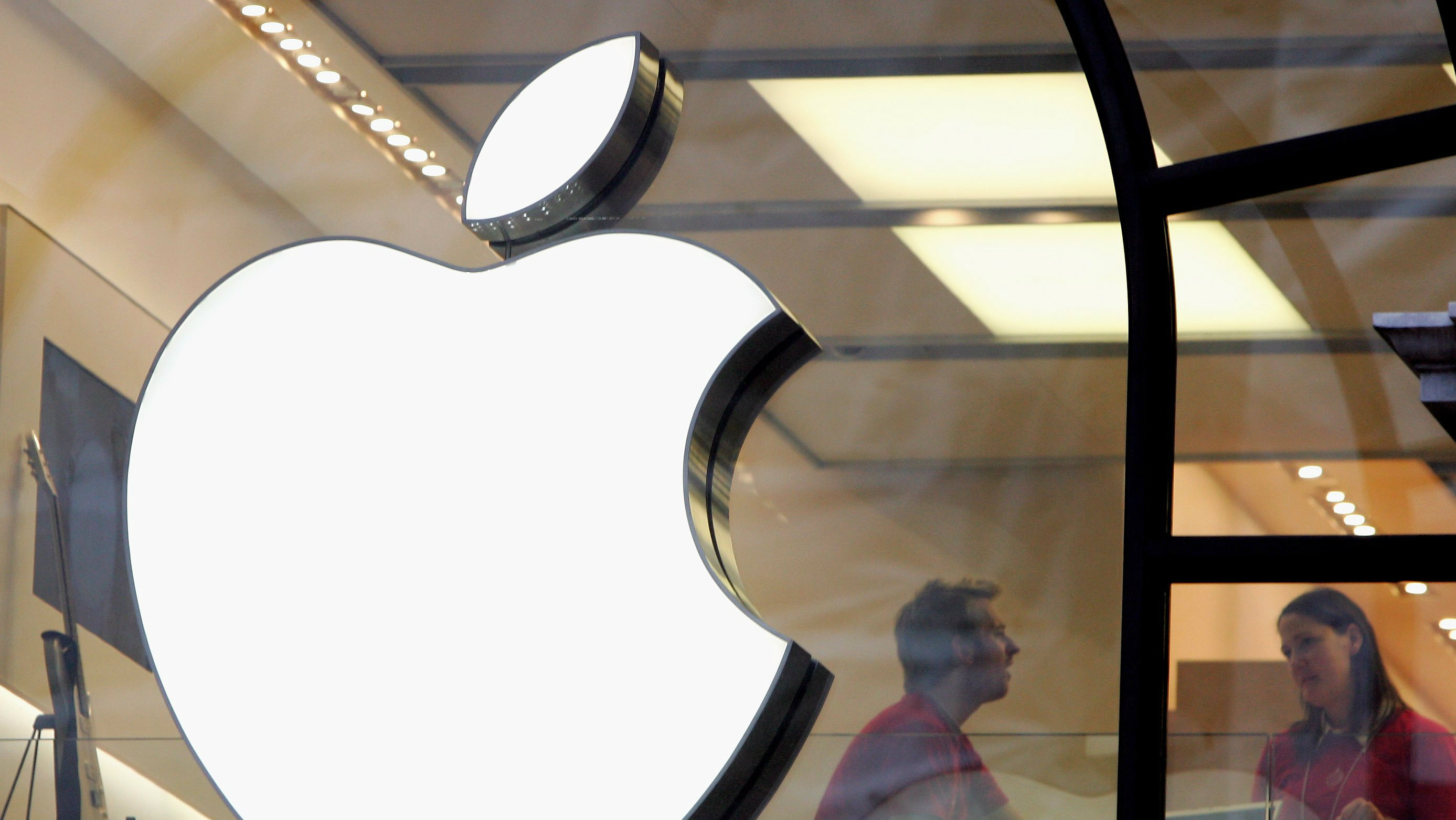
A free daily email with the biggest news stories of the day – and the best features from TheWeek.com
You are now subscribed
Your newsletter sign-up was successful
Apple has filed its formal appeal against an €18bn (£11bn) back-tax bill handed down by the European Commission, claiming it is nothing more than a "convenient target" for regulators.
In a strongly-worded statement the company said it pays an effective tax rate around the world of 26 per cent, but that the majority of this is paid in the US, where its products are "created, designed and engineered", says the BBC.
Apple also claimed to be the largest taxpayer in the world, specifically within both the US and Ireland, where its European headquarters are based and where the corporate tax rate is 12.5 per cent.
The Week
Escape your echo chamber. Get the facts behind the news, plus analysis from multiple perspectives.

Sign up for The Week's Free Newsletters
From our morning news briefing to a weekly Good News Newsletter, get the best of The Week delivered directly to your inbox.
From our morning news briefing to a weekly Good News Newsletter, get the best of The Week delivered directly to your inbox.
Ireland itself has also appealed the ruling, saying that the commission has "misunderstood the relevant facts and Irish law".
In August the commission handed down its record ruling relating to Apple in Ireland, in which it alleged its two Irish subsidiaries had paid an effective tax rate of less than one per cent due to a so-called "sweetheart" deal with the country.
The ruling stated that by allowing Apple to pay such a low tax rate, the Irish government had given the company unfair state aid that undermined competition.
The commission has previously issued similar state aid rulings against the governments of Luxembourg, the Netherlands and Belgium relating to their respective tax deals with Fiat, Starbucks and Budweiser brewer AB InBev.
A free daily email with the biggest news stories of the day – and the best features from TheWeek.com
It has effectively demanded that Ireland collects £11bn in additional tax from Apple – but while you might expect this to be welcomed by the Irish government, quite the reverse is true.
Ministers are worried the ruling, if it goes ahead, will have an adverse effect on a company that employs 6,000 people in the country. The Irish Independent adds that the ruling also calls into question the effectiveness of Ireland's tax authority.
Specifically, the European Commission alleges that Apple operates two local subsidiaries in Ireland that collect all its non-US revenues but which do "not conform to economic reality".
But Apple says it has paid a fair rate on its global earnings and that "the case has never been about how much tax Apple pays, it's about where that tax is paid".
The European Commission maintains Apple's affairs in Ireland allow it to avoid paying a fair rate of tax – but that the amount collected by Ireland could be reduced if other countries required Apple to "pay more tax locally".
Ireland decides whether to appeal €13bn Apple back-tax bill
02 September
Ireland is expected to decide today whether to appeal against the EU ruling that Apple should pay back taxes of €13bn (£11bn), with the cabinet divided between pleasing taxpayers or encouraging business.
The decision by the EU, which came after a three-year investigation into the tech giant's tax affairs, was based on the claim that Ireland had broken European Union rules by giving Apple special treatment. The commissioners argued the company had paid an effective tax rate of just one per cent in the republic.
Apple, however, insists it did not have a special deal, saying it didn't pay much tax because its turnover was not generated in Ireland. The Irish government, meanwhile, said the EU had failed to understand its tax system.
Apple is expected to appeal against the decision, with chief executive Tim Cook saying he is "very confident" it will be overturned. Now Ireland's politicians must decide whether to do so.
Ireland's official corporation tax rate of 12.5 per cent is one of the most generous in Europe and does much to attract multinationals, with Google, Intel, Pfizer and Dell all having their European headquarters in the country.
Accepting the EU decision – and with it, Apple's €13bn – might be seen as signalling tougher times ahead, deterring firms from moving to Ireland.
At the same time, says the BBC's Shane Harrison, not collecting Apple's cash, which is equivalent to the entire country's annual health budget, "is a big political ask".
The decision is further complicated by the fact the Fine Gael party is in a minority government, says the journalist, and depends on the support of the opposition Fianna Fail – which wants to appeal.
According to Harrison, Fianna Fail is motivated in part by a desire to find out whether Fine Gael really did cut a secret deal with Apple, something that would be explored during the appeal process.
Added to that, not appealing will be seen as accepting that the credibility of Ireland's Revenue Commissioners has been questioned, he continues. And, while it doesn't want to frighten off multinationals, Fine Gael does not want Ireland to be seen as a tax haven.
Finance minister Michael Noonan said earlier this week that an appeal would go ahead – but the independents who prop up Fine Gael insist parliament must be recalled for the decision.
US anger over Apple's €13bn EU tax bill
31 August
The US has reacted with anger to the EU's ruling that Apple should pay €13bn in back taxes in Ireland, with the Treasury saying it could damage "the important spirit of economic partnership between the US and the EU".
Others in the country have condemned yesterday's ruling as "unfair" and warned taxpayers could end up footing the bill if Apple pays less tax in the United States as a consequence.
Announcing the decision yesterday after a three-year investigation, EU competition commissioner Margrethe Vestager said Ireland had given Apple anunfair advantage over other taxpayers.
Officials calculated Apple paid the Irish government an effective tax rate of four per cent, far lower than country's standard 12.5 per cent corporation tax.
Apple says it has not received special treatment, while the Irish government is expected to appeal the ruling.
The US Treasury said today: "We believe that retroactive tax assessments by the Commission are unfair, contrary to well-established legal principles, and call into question the tax rules of individual member states."
Democratic senator Charles Schumer said: "This is a cheap money grab by the European Commission, targeting US businesses and the US tax base.
"By forcing their member states to retroactively impose taxes on US companies, the EU is unfairly undermining our ability to compete economically in Europe while grabbing tax revenues that should go toward investment here in the United States."
The White House said the ruling could cost US taxpayers, the BBC reports, fearing that Apple may pay the penalty and then offset the loss against duties due in the United States.
The US anger reflects fears that the EU is becoming "too big for its own boots", commentators say. Vestager, meanwhile, wants EU member states to send a message to global corporations that they are not more powerful than national governments.
The apparent failure of the Trans-Atlantic Trade and Investment Partnership (TTIP), has also fed the reaction, analysts say, with US politicians frustrated by years of inconclusive negotiations with an EU they regard as obstinate and over-reaching.
Both Donald Trump and Hillary Clinton, the Republican and Democratic candidates for the presidency, have hinted they may lower corporation tax in the US if elected – and Clinton is seen as having close ties to Apple.
Apple should repay €13bn in tax in Ireland, says EU
30 August
Apple should pay €13bn (£11bn) in back taxes in Ireland, EU competition officials have ruled, after a three-year investigation. The bill is the biggest tax penalty ever levied in Europe.
Investigators told Ireland two years ago they believed Apple's tax arrangements violated European law. According to the BBC, the EU says the tech giant has effectively enjoyed a one per cent tax rate in Ireland, far lower than the country's 12.5 per cent corporation tax.
This amounts to illegal state aid to a company, says the EU, as rules prohibit governments from giving special treatment to any one firm.
Perhaps surprisingly, the Irish government doesn't want to be paid billions of euros by Apple. Admitting the US tech giant enjoyed special treatment would be more than embarrassing: it might limit future tax arrangements and discourage businesses from going to the country.
Both Apple and Ireland are likely to appeal against the decision, says the BBC. Ireland says the EU "misunderstands the Irish tax system" while Apple argues it has received no selective treatment.
Apple now has $180bn (£138bn) offshore, says BBC business correspondent Dominic O'Connell, after channelling much of it through Ireland. If that money was returned to the US, it would be incur a tax rate of 40 per cent.
Speaking on the Radio 4's Today programme, Molly Scott Cato MEP, the Green Party's spokesperson on finance, said the case represented an attempt by the EU to limit the power of corporations.
She added that lead investigator Margrethe Vestager wants member states to work together to show multinational firms that national governments have more power than they do – and must be respected.
Delivering the ruling today, Vestager said: "Member states cannot give tax benefits to selected companies - this is illegal under EU state aid rules.
"The Commission's investigation concluded that Ireland granted illegal tax benefits to Apple, which enabled it to pay substantially less tax than other businesses over many years."
-
 Is Andrew’s arrest the end for the monarchy?
Is Andrew’s arrest the end for the monarchy?Today's Big Question The King has distanced the Royal Family from his disgraced brother but a ‘fit of revolutionary disgust’ could still wipe them out
-
 Quiz of The Week: 14 – 20 February
Quiz of The Week: 14 – 20 FebruaryQuiz Have you been paying attention to The Week’s news?
-
 The Week Unwrapped: Do the Freemasons have too much sway in the police force?
The Week Unwrapped: Do the Freemasons have too much sway in the police force?Podcast Plus, what does the growing popularity of prediction markets mean for the future? And why are UK film and TV workers struggling?
-
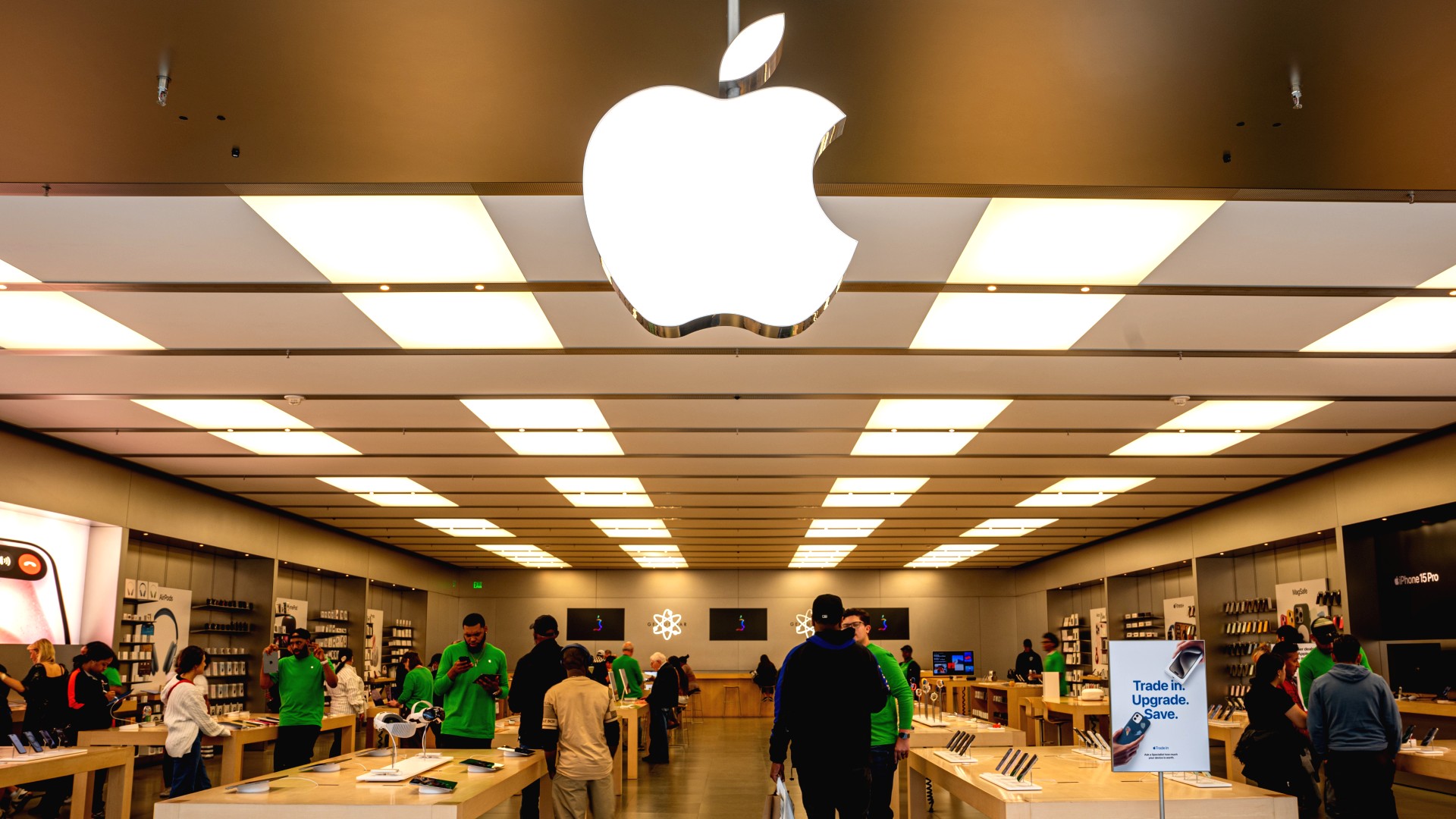 Apple in first union contract with retail employees
Apple in first union contract with retail employeesSpeed Read The deal with employees at the Towson, Maryland, store marks the first labor agreement for any US Apple employees
-
 Surviving mid-career job loss
Surviving mid-career job lossfeature And more of the week's best financial insight
-
 Troubled union: Apple's China problem
Troubled union: Apple's China problemfeature How will Apple branch away from building products in China?
-
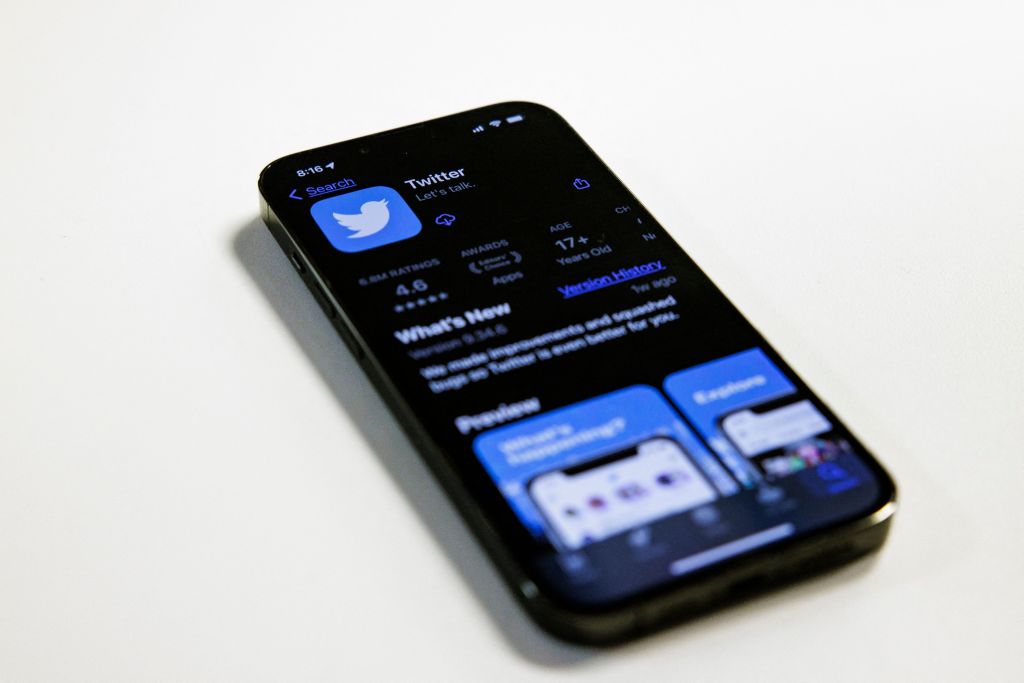 Elon Musk claims Apple threatened to remove Twitter from the App Store
Elon Musk claims Apple threatened to remove Twitter from the App StoreSpeed Read
-
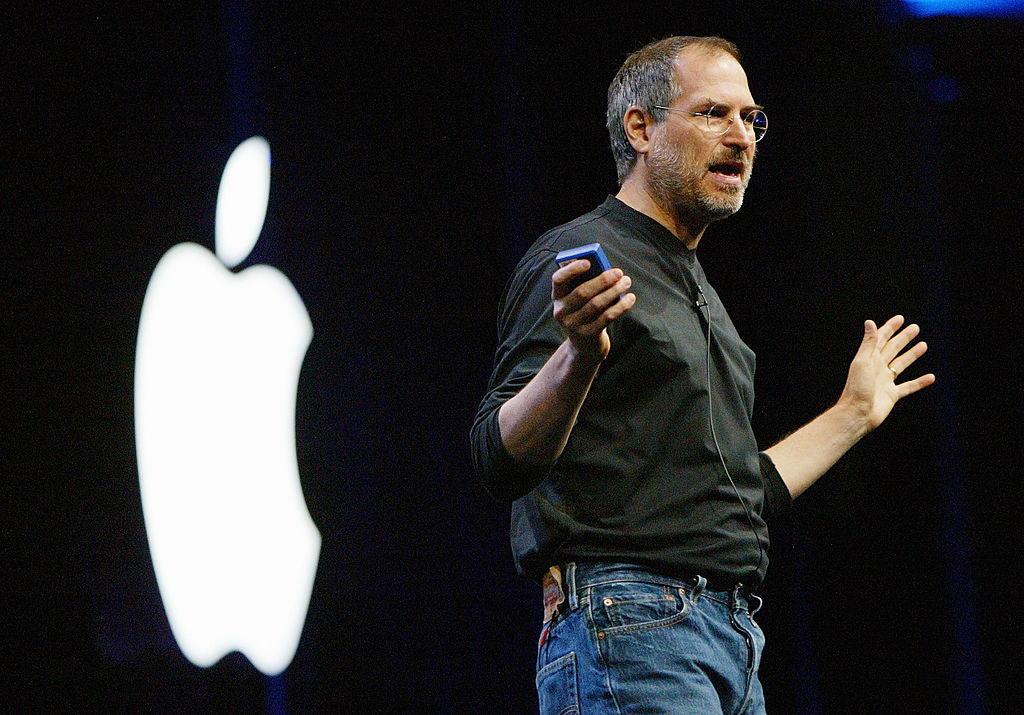 Steve Jobs' used Birkenstocks sell at auction for $218,000
Steve Jobs' used Birkenstocks sell at auction for $218,000Speed Read
-
 Less free coffee with those donuts
Less free coffee with those donutsfeature
-
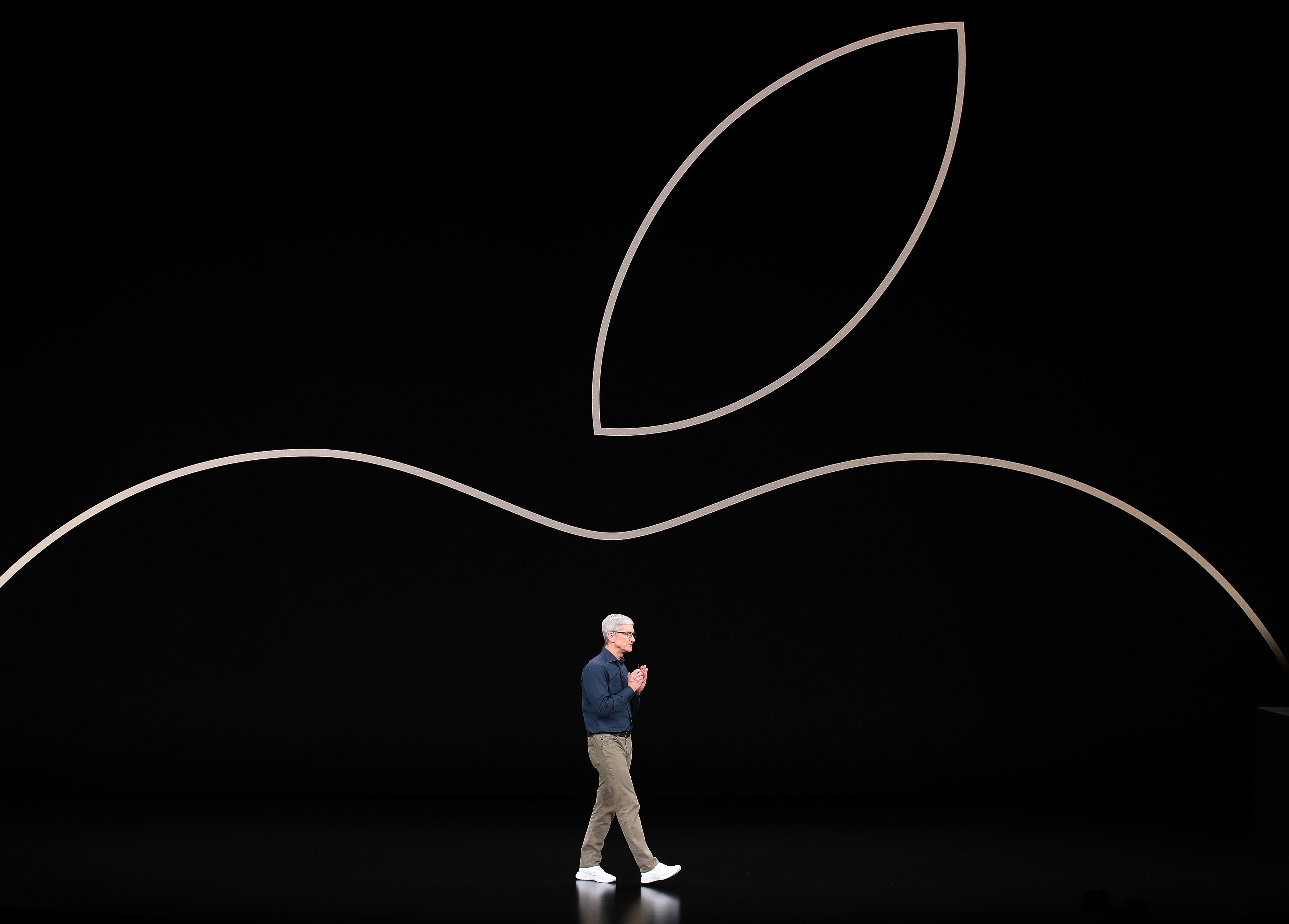 Weak Apple projections hint at global slump
Weak Apple projections hint at global slumpfeature Should the Federal Reserve keep raising interest rates?
-
 Labour shortages: the ‘most urgent problem’ facing the UK economy right now
Labour shortages: the ‘most urgent problem’ facing the UK economy right nowSpeed Read Britain is currently in the grip of an ‘employment crisis’